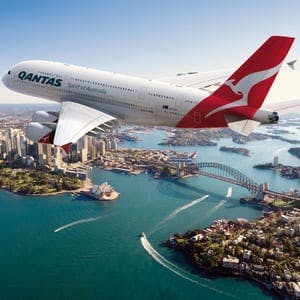Qantas and the three unions involved in industrial disputes have failed to reach a resolution after 21-days of talks, with Fair Work Australia (FWA) to now begin the binding arbitration process.
Qantas failed to reach an agreement with the Transport Workers Union (TWU), the Australian Licensed Aircraft Engineers Association (ALAEA) and the Australian and International Pilots Association (AIPA), despite three weeks of intensive talks the FWA decreed after months of strike action led CEO Alan Joyce to ground the fleet for 48-hours in October.
Joyce said Qantas’ preferred option was to resolve the dispute through negotiations, but it was now time for FWA to take control of the situation.
“We haven’t been able to reach a new agreement with the Transport Workers Union [and AIPA] through negotiations so we will now let the independent umpire decide. We made a generous offer which included reasonable increases in pay and conditions, protections on the jobs of existing Qantas employees and Qantas maintaining the flexibility we need to run the airline. The union rejected this offer.”
“We did make some progress but we simply cannot agree to all of the union’s demands. We cannot give in to demands that we hand over control of parts of the airline to the union.”
According to The Australian Business Traveller, travellers need to be aware that although the FWA ordered all unions to the stop industrial action that was crippling the airline, the TWU is considering beginning legal action against the decree.
As part of this, the TWU would seek a temporary suspension of the FWA ruling, allowing union members to again stop work.
The pilot’s union has already begun similar legal proceedings.
Whether or not this action will be granted by the Federal Court remains to be seen, but it could lead to further interruptions for both business and personal travellers.
Transport Minister Anthony Albanese doesn’t believe the TWU’s action will be accepted by the courts, saying “we don’t support people taking legal action. We have an umpire and the umpire should be allowed to make their decision. We’re confident the courts would uphold that.”
It could take the FWA many months to complete the binding arbitration process, as all parties present their sides of the case. Once a decision is reached, all parties involved will be obligated to honour it.

